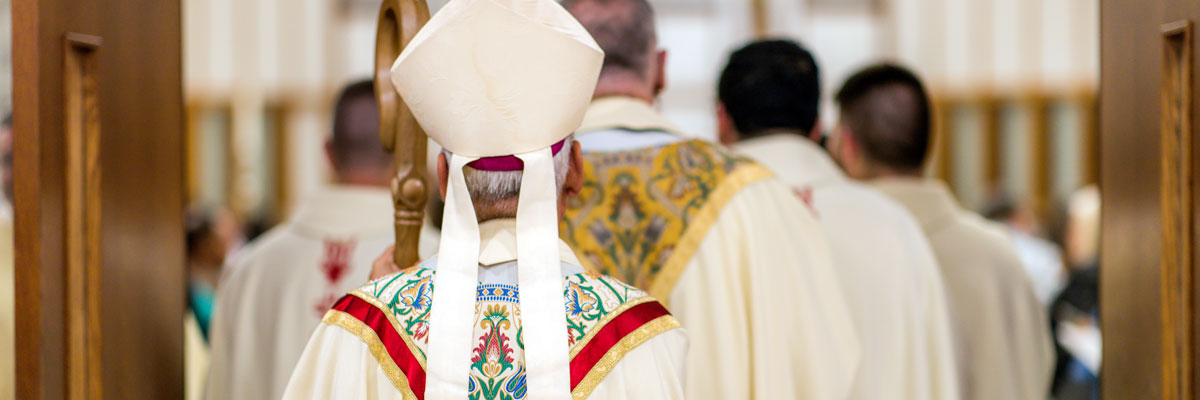Official Website of the
Catholic Diocese of Little Rock
Wise or not, Solomon makes way for God
Published: December 3, 2011
This is the seventh column in a 13-part series
By Cackie Upchurch
Director of Little Rock Scripture Study
Israel's third king, the final one to reign over a united monarchy, was Solomon, son of David and Bathsheba. His story, found in I Kings 1-11, is filled with hyperbole almost unrivaled within the biblical tradition.
 Solomon is said to have expanded the territory of Israel to its largest size, using two methods, military overthrow of his opponents and marital alliances of his own and of his children. His royal palace was elaborately adorned, his vast harem was legendary, and his personal wealth was vast. In the ancient Mediterranean world such accomplishments were seen as evidence of God's favor and signs of divine wisdom.
Solomon is said to have expanded the territory of Israel to its largest size, using two methods, military overthrow of his opponents and marital alliances of his own and of his children. His royal palace was elaborately adorned, his vast harem was legendary, and his personal wealth was vast. In the ancient Mediterranean world such accomplishments were seen as evidence of God's favor and signs of divine wisdom.
"God gave Solomon wisdom, exceptional understanding, and knowledge, as vast as the sands of the seashore. Solomon's wisdom surpassed that of all the peoples of the East and all the wisdom of Egypt. ... People from all nations came to hear Solomon's wisdom, sent by all the kings of the earth who had heard of his wisdom" (1 Kings 5:9-10, 14).
Indeed, Solomon is said to have prayed for wisdom as a young newly anointed king: "Give your servant a listening heart to judge your people and to distinguish between good and evil" (1 Kings 3:9). His wisdom is quickly put to the test in the story of two women torn over a child that each woman claimed as her own (1 Kings 3:16-28). In deciding the case, Solomon asked for his sword and commanded that the child be split between the two women, knowing, or perhaps hoping, that the true mother would give up her child rather than allow it to suffer such a fate.
In that region of the world, such stories served to illustrate the importance of royal wisdom. Kings were expected to possess insight into the human condition, and the seeming ability to decide justly, to discern even without clear evidence, in the most confusing of circumstances.
When the arduous process of building the Temple in Jerusalem was completed under Solomon's watchful eye, God's people gathered to dedicate it as the dwelling place of the Lord (1 Kings 8:22-66). Solomon offered petitions on behalf of all of God's people, invoking God's presence, forgiveness, and protection.
Indeed Solomon seems the ideal king: judging justly, stabilizing and expanding the nation, and all with a sense of God's presence and purpose among them. What lies beneath, however, does not always match what is visible on the surface.
In the final chapter of Solomon's story (1 Kings 11), we find rather large cracks that reveal a darker side to the 40 years of Solomon's reign. God criticizes him not only for foreign alliances with enemies of God, but for erecting pagan sanctuaries and allowing worship of foreign deities.
Perhaps most ironic of all, after the death of Solomon, we learn that he conscripted his own people, using their forced labor to build the structures so indicative of Israel's seeming stability and success. In addition, Solomon imposed a burden of heavy taxation on the people.
The breaking point came when Jeroboam, a servant in Solomon's court, rebelled against the abusive monarchy. Solomon's son Rehoboam, the heir to the throne, refused to reverse the oppressive policies of his father. A united Israel would be no more.
The northern tribes under the leadership of Jeroboam retained the name Israel and initially established Shechem as their capital city. Their holy places were the shrines of Dan, Bethel and Shechem, established as the tribes entered the land after escaping Egyptian oppression. The southern tribe of Judah remained in the region around Jerusalem, retaining it as their capital and the Temple as the highest place of worship.
Was Solomon truly wise? Or was his wisdom only the stuff of legend, a necessary way of explaining his success in a world where no other reason would make sense? Perhaps he was, like many of us, a complex mix of virtue and vice.
In remembering their final king of the united monarchy, Israel chose to preserve hyperbole as well as disgrace. Israel chose to allow God to shine through both the good and the bad.
The story of Solomon reminds generations of believers that God's work will be accomplished through the nitty-gritty of the human condition. Our failures cannot defeat God's plan, our virtues cannot accomplish it, but in all things God's hand can be discerned and God's wisdom will win the day.
Study Questions
- When has the difference between a person's public image and personal life been a source of concern for you?
- What can you learn about the way Israel told the stories of its ancestors from the fact that even the great king Solomon is remembered for both wisdom and failure?
- People often refer to the "wisdom of Solomon" when making difficult decisions. What is one situation when you felt the need for the kind of wisdom Solomon displayed (1 Kings 3:16-28) in his decision about the baby with two women claiming to be the mother?
- Israel expected its nation to last forever, ruled by the house of David and Solomon, but the nation divided and was defeated by foreign powers and its own internal struggles to be faithful to God. When has an unexpected turn of events given you an opportunity to grow in trusting God?
This article was originally published in Arkansas Catholic Dec. 3, 2011. Copyright Diocese of Little Rock. All rights reserved. This article may be copied or redistributed with acknowledgement and permission of the publisher.









